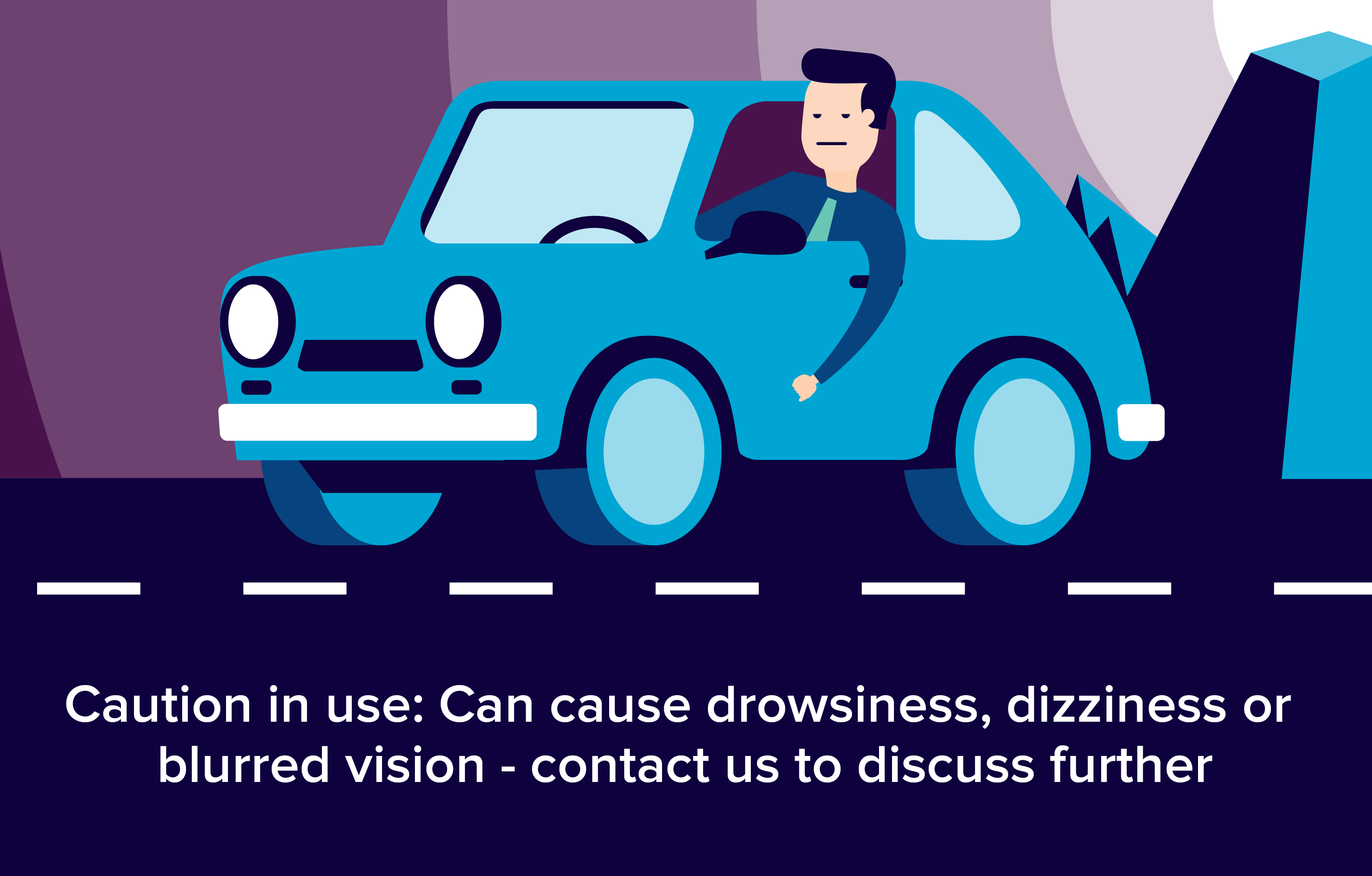Swallow them with a glass of water.
A physician should be consulted in the event that a dose has not been taken at the prescribed time, a meal has been skipped or an extra dose has been taken.
It is very important not to skip meals after the tablets have been taken.
What’s the dose?
The usual dose to take is 5mg daily, but your doctor may advise you to increase this by weekly adjustments with 2.5mg or 5mg Daonil until your blood sugar is under control.
Could it interact with other tablets?
Daonil may react with the following drugs:
-
Insulin and other oral antidiabetics
-
ACE inhibitors
-
anabolic steroids and male sex hormones
-
chloramphenicol
-
coumarin derivatives
-
cyclophosphamide
-
disopyramide
-
fenfluramine
-
fenyramidol
-
fibrates
-
fluoxetine
-
ifosfamide
-
MAO inhibitors
-
miconazole
-
para-aminosalicyclic acid
-
pentoxifylline
-
phenylbutazone
-
azapropazone
-
oxyphenbutazone
-
probenecid
-
quinolones
-
salicylates
-
sulfinpyrazone
-
sulfonamides
-
sympatholytic agents such as beta-blockers and guanethidine
-
clarithromycin
-
tetracyclines
-
tritoqualine
-
trosfosfamide
Weakening of the blood-glucose-lowering effect and, therefore, raised blood glucose levels may occur when taking other drugs, including:
-
Acetazolamide
-
barbiturates
-
corticosteroids
-
diazoxide
-
diuretics
-
epinephrine and other sympathomimetic agents
-
glucagon
-
laxatives
-
nicotinic acid
-
oestrogens and progestogens
-
phenothiazines
-
phenytoin
-
thyroid hormones
-
rifampicin
H2-receptor antagonists, clonadine, and resperine may lead to either potentiation or weakening of the blood-glucose-lowering effect.
Under the influence of drugs such as beta-blockers, clonidine, guanethidine, and resperine, the signs of hypoglycaemia may be reduced or absent.
Daonil may increase cyclosporine plasma concentration and potentially lead to its increased toxicity.
Both acute and chronic alcohol intake may potentiate or weaken the blood glucose lowering action of Daonil in an unpredicted fashion.
Daonil may either potentiate or weaken the effect of coumarin derivatives.
Bosentan: An increased incidence of elevated liver enzymes was observed in patients receiving Daonil concomitantly with bosentan
Herbal supplements should be used with caution and only after informing your doctor first.
What are the possible risks or side-effects?
-
Side-effects to Daonil may include an upset stomach, itchy skin or rash, hypersensitivity to light. Your sight may be affected, but this should soon improve.
-
Tell your doctor if these are bad or if they last for a long time. If you feel ill after taking the tablets, or notice anything unusual or unexpected, tell your doctor.
-
It is important that you know what to do and what symptoms to expect when low blood sugar (hypoglycaemia) occurs as this is a common side effect.
Possible symptoms of hypoglycaemia include:
-
headache
-
ravenous hunger
-
nausea
-
vomiting
-
lassitude
-
sleepiness
-
disordered sleep
-
restlessness
-
aggressiveness
-
impaired concentration
-
alertness and reaction time
-
depression
-
confusion
-
speech and visual disorders
-
aphasia
-
tremor
-
paresis
-
sensory disturbances
-
dizziness
-
helplessness
-
loss of self-control
-
delirium
-
cerebral convulsions
-
somnolence and loss of consciousness up to and including coma
-
shallow respiration and bradycardia
In addition, signs of adrenergic counter-regulation may be present such as sweating, clammy skin, anxiety, tachycardia, hypertension, palpitations, angina pectoris and cardiac arrhythmias.
Symptoms can almost always be promptly controlled by immediate intake carbohydrates (sugar). Artificial sweeteners have no effect.
In rare cases your liver may be affected by this medicine making you feel nauseous or you may notice your skin or eyes appear yellowish. In other rare cases you may feel generally weak or faint, breathless on exertion, with a fast heartbeat. You may look very pale or notice some bruising. This product may adversely affect the composition of the blood and your doctor may wish to carry out blood tests in order to monitor your blood picture. Be sure to tell your doctor about any of these symptoms.
Can I drink alcohol while taking it?
-
Alcohol should be avoided while taking Daonil as it can affect the blood glucose levels in an unpredictable fashion.
What if I’m pregnant/breastfeeding?
Daonil must not be taken during pregnancy or by breastfeeding women. The patient must change over to insulin during pregnancy. Patients planning a pregnancy must inform their physician. It is recommended that such patients change over to insulin.
If you have any more questions please ask your Pharmacist.
Remember to keep all medicines out of reach of children
Please Note: We have made every effort to ensure that the content of this information sheet is correct at time of publish, but remember that information about drugs may change. This sheet does not list all the uses and side-effects associated with this drug. For full details please see the drug information leaflet which comes with your medicine. Your doctor will assess your medical circumstances and draw your attention to any information or side-effects which may be relevant in your particular case.
References:
http://medical-dictionary.thefreedictionary.com/Semi-daonil
http://www.news-medical.net/drugs/Daonil.aspx
https://en.wikipedia.org/wiki/Glibenclamide
http://www.mydr.com.au/medicines/cmis/daonil-tablets

